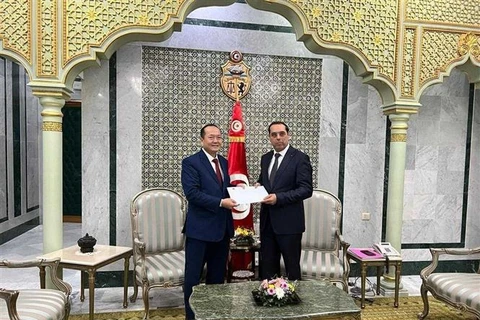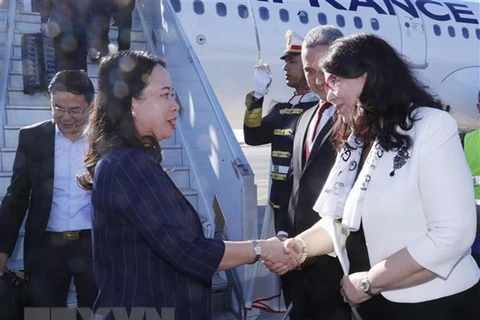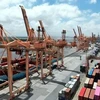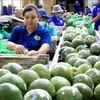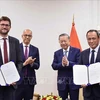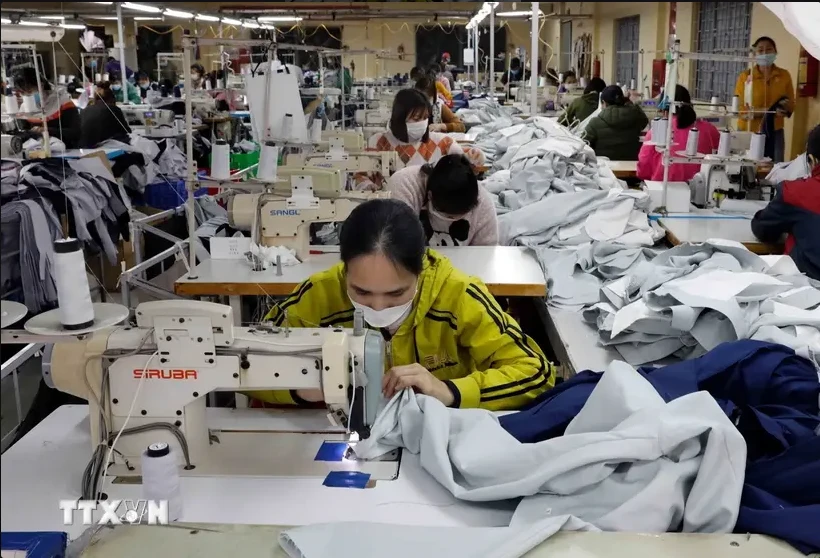
Tunis (VNA) – The Vietnam Trade Office in Algeria and Tunisia last week coordinated with the Tunisian Union of Industry, Trade and Handicrafts (UTICA) to organise a conference to connect Vietnamese businesses and their peers in in Tunis.
The event saw the participation of representatives from several local ministries, sectors, and 60 businesses of the two countries. It was one of the activities in the working visit by the trade office delegation to Tunisia from September 30 to October 4.
Speaking at the event, Secretary General of Tunisian Federation of Textiles and Clothing Noha Dallagi said that although Tunisia is a small country with an area of 163,610 sq.m and a population of about 12.5 million people, it is one of the most dynamic and competitive economies in the African-Arab region, deeply integrated into the international community and has a convenient location with Europe, just 140 km away.
The country has participated in eight multilateral and bilateral free trade agreements (FTAs). Therefore, it can be considered a gateway for goods from countries, including Vietnam, to penetrate the African and Arab markets, especially the North African region.
Each year, Tunisia imports about 30,000 tons of raw coffee, mainly robusta coffee, and 30,000 tonnes of rice, while importing commodities such as rice, sugar, coffee, and green tea.
On this occasion, she called on businesses from both sides to actively learn about each other's advantages to strength cooperation.
She also called on Vietnamese businesses to study the possibility of investing, establishing joint ventures and partnerships with Tunisian partners in areas such as processing, new technology, marine fish farming.
Hoang Duc Nhuan, Vietnamese Trade Counselor in Algeria and Tunisia, briefed the participants on Vietnam’s economic and trade situation, import-export policies, and Vietnam- Tunisia relations. Vietnam exports to Tunisia items such as raw coffee, pepper, cashew nuts, seafood, machinery and equipment, razors, fabrics, and footwear, while importing seafood, dates, chemicals, plastic products, clothing, and raw materials for animal feed production.
At the conference, it was assessed that trade cooperation between the two countries is still modest, not commensurate with the potential because their businesses have not paid due attention to each other's markets. Businesses also pointed out difficulties they are facing including the recent high prices of some Vietnamese export products such as coffee or pepper, the sharp increase in transportation costs due to conflicts in the Middle East, and Tunisia's focus on the European Union (EU) and Africa markets due to geographical proximity and free trade agreements.
